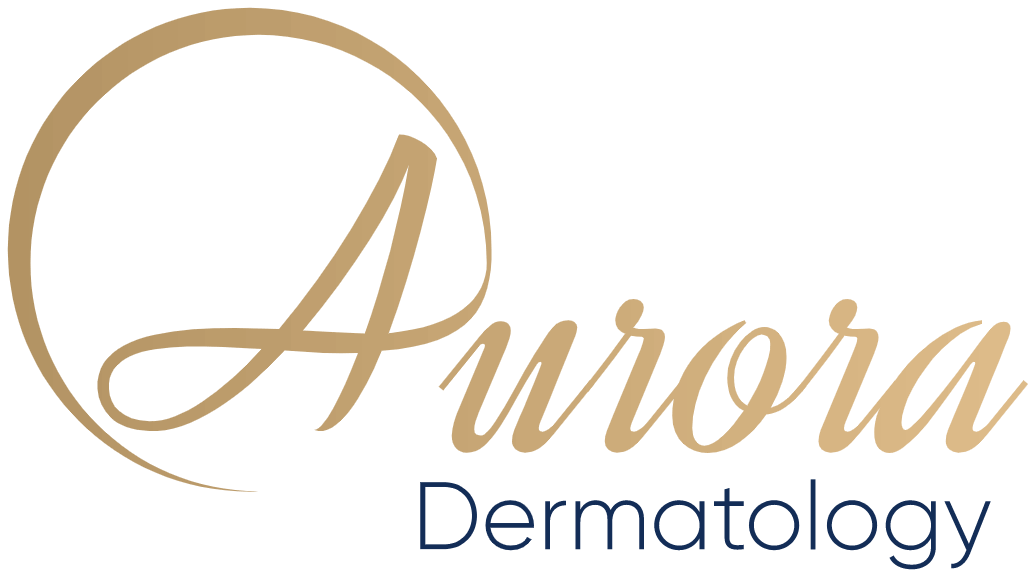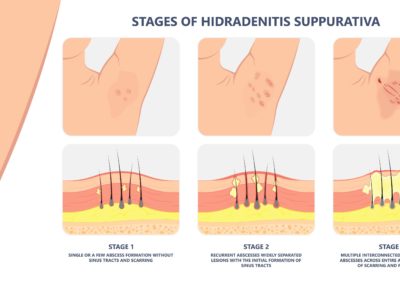Hidradenitis Suppurativa
What is Hidradenitis Suppurativa or HS?
Hidradenitis suppurativa is a skin condition that is inflammatory and chronic and also goes by the name of acne inversa.
It affects skin in the armpits, groin and under the breasts.
It often starts in puberty or early adulthood and is more common in women than men.
HS often improves with pregnancy however this is a chronic scarring condition and while spontaneous remission is common, scarring will remain and treating early can minimise scarring.
What are the symptoms of hidradenitis suppurativa?
Hallmark symptoms of HS include
- Abscesses that discharge
- Recurrent boil-like nodules that scar
- Open double-headed comedones (flesh coloured acne pimples), papules (a redder, more severe acne) and nodules (even deeper in the skin and more severe again)
- Lesions that exude pus and are often uncomfortable and embarrassing for patients.
What are the risk factors for hidradenitis suppurativa?
- Genes play a big role and for people with HS nearly half report another family member is affected.
- Other conditions such as pilonidal sinus, follicular occlusion syndrome, acne conglobata, psoriasis, hirsutism, Crohn’s disease and other inflammatory bowel diseases, dissecting cellulitis often go hand in hand with it along with PAPA Syndrome – a rare genetic inflammatory syndrome that impacts skin and joints.
- Thyroid disorders, arthropathies, Polycystic Ovarian Syndrome, metabolic syndrome conditions including obesity and diabetes are also co-morbidities.
- African ethnicity
- Medications such as lithium, biologics and sirolimus
What are the treatments for hidradenitis suppurativa?
Treatments are based on every patient’s individual circumstances and can include
- Triclosan/benzoyl peroxide wash
- Steroid injections
- Biologics (an immune modulation treatment that targets the body’s inflammatory response). Adalimumab/Humira is the one of the biologics and currently the only biologic approved in Australia for this condition.
- Antibiotics systemic or topical (fusidic acid, dapsone, metronidazole)
- Antibiotics need to be taken for three months.
- Systemic retinoids, such as isotretinoin
- Surgical procedures may include incision and drainage of abscesses, removal of persistent abscesses and sinuses and laser treatment with our C02 laser.


